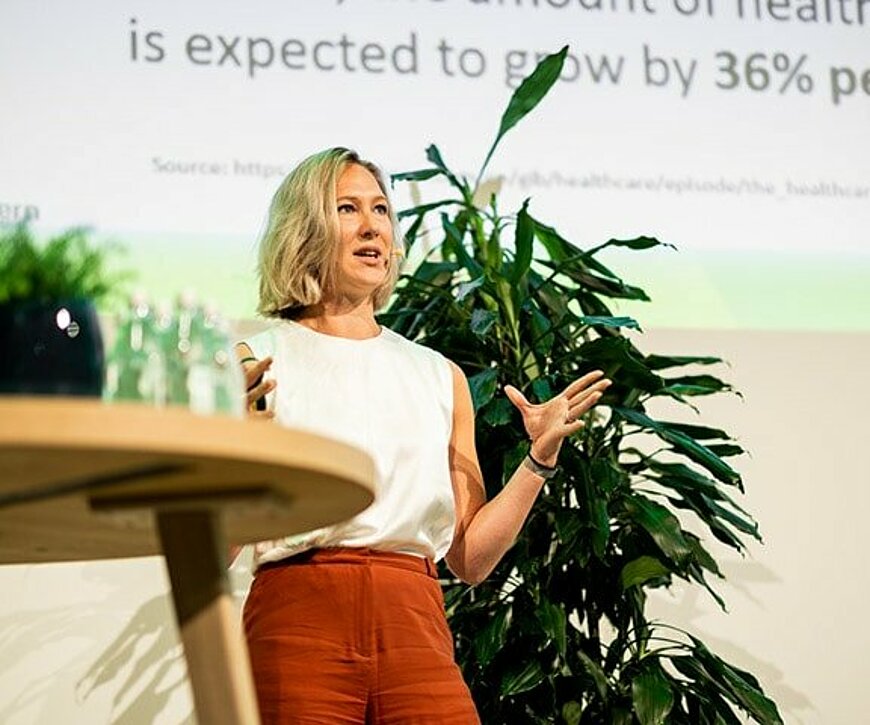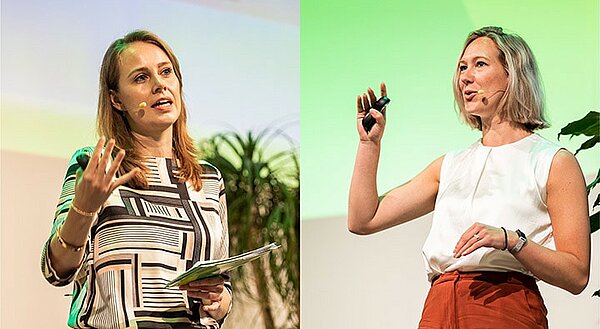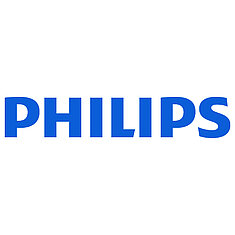"Having more diversity in data science teams is incredibly important"

"We are drowning in information, while starving for wisdom." This famous quote by biologist E.O. Wilson exposes the challenges of data science; hospitals have access to large amounts of data, but often do not know how to extract valuable information from it.
Arlette van Wissen and Ymke de Jong gave a presentation on this during the Women in Data Science event, at the High Tech Campus in Eindhoven. Both experts within Philips in artificial intelligence told the audience (students, professionals and scientists in the field of data science) about the hurdles that still need to be taken to reap the benefits of data: such as more diversity and better collaboration.
Inclusive data
Senior Data Scientist Arlette van Wissen is responsible within Philips for Responsible AI, which includes "bias-free AI. In other words: ensuring that the algorithms Philips develops are free of bias as much as possible.
Especially within healthcare, it is vital - sometimes literally - that datasets are inclusive. "For example, we know that women are underrepresented in research on heart failure and coronary heart disease. Traditionally, less than 30 percent of clinical trial data in that domain has come from female patients. That still causes symptoms of these diseases to be less well recognized in women; so it really can be a matter of life and death."
Arlette showed the audience that there are indeed ways to minimize the chance of bias in datasets and algorithms. "Within Philips, we use a framework to test whether there is risk of bias in datasets or algorithms. For example, if you know that certain groups are underrepresented, you can apply corrections to avoid skewed results.

In addition, it is important to realize that biases are not only in data, but also in ourselves. Because of the choices we make, consciously or unconsciously, biases can end up in algorithms. That's why it's so incredibly important that we have more diversity in data science teams."
Because of the choices we make, consciously or unconsciously, biases can end up in algorithms. That's why it's so incredibly important that we have more diversity in data science teams.
Arlette van Wissen, Senior Data Scientist
That message struck at the heart of Women in Data Science's mission: to promote inclusion and diversity within data science.
Digital transformation in healthcare
Ymke de Jong, Clinical Data Scientist and Data & AI Partnerships Lead within Philips, told the audience about another challenge; digital transformation within healthcare.
"Healthcare is certainly not having an easy time at the moment. We are facing an aging population and a growing workforce shortage. Healthcare providers are looking for ways to work more efficiently to save costs; healthcare is becoming more and more expensive. Patients are increasingly involved in their health; we all google our symptoms before going to the doctor with complaints. We also track our own health with smart watches and lifestyle trackers."
Digital transformation has enormous potential to solve these problems. But then we come to another problem: We have access to large amounts of data, but often don't know how to extract valuable information from it."
AI is not the solution itself
Within Philips, Ymke is responsible for projects that aim to accelerate data and AI innovations from the laboratory into clinical practice. According to Ymke, the bottleneck is not so much in the technology: "AI can solve a lot of things, but AI is a tool and not the solution itself. Philips research, the Future Health Index, found that healthcare providers still often struggle with managing data, sharing data between systems and training healthcare workers to reap the benefits of data."
If we want to accelerate digital transformation in healthcare, it is important to involve clinical experts every step of the way. It is also important to train employees how to use data and make data sharing easier. "In addition, I believe very strongly in partnership ecosystems so we can jointly address these challenges. An example is the close collaboration with partners in a regional ecosystem: the Eindhoven MedTech Innovation Center (e/MTIC).

In this, Philips, TU/e and the three local hospitals: Catharina Hospital, Máxima Medical Center and Kempenhaeghe work together on medical innovations.
If we want to accelerate digital transformation in healthcare, it is important to involve clinical experts in every step. We also need to train staff on how to use data and make data sharing easier.
Ymke de Jong, Clinical Data Scientist and Data & AI Partnerships Lead
And with success; for example, thanks to e/MTIC, last year we launched the Healthdot, a sensor that ensures that patients can go home faster after surgery. Important for this innovation was the substantiation that the solution works in clinical practice, and for that the close collaboration with Catharina Hospital was essential."
